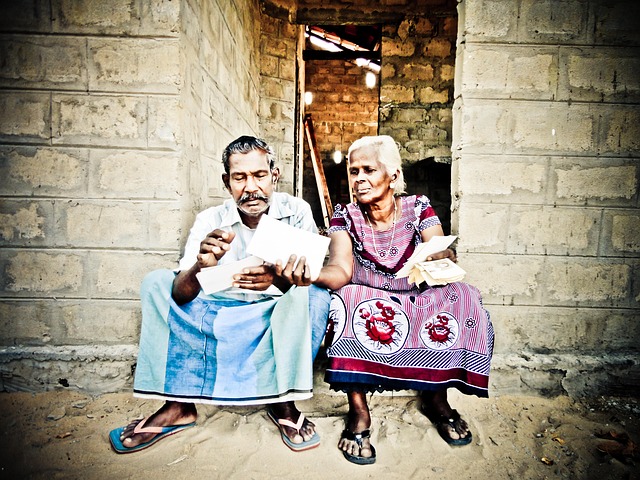In Washington State, grandparents have legally protected rights to foster relationships with grandchildren during family court custody or visitation proceedings. Washington County advocacy groups provide crucial legal aid, resources, and guidance to ensure fair representation for grandparents, helping them navigate complex procedures and advocate for their rights to maintain meaningful connections with grandchildren. These steps include initial consultations, documentation gathering, filing petitions, response periods, hearings, and utilizing local advocacy group support. Resources like workshops, online guides, legal forms, and community forums aid grandparents in protecting their rights during these proceedings.
In Washington State, grandparent rights play a vital role in family court proceedings. Understanding these rights is crucial for ensuring that grandparents can maintain meaningful relationships with their grandchildren. This article delves into the legal framework governing grandparent access and provides a comprehensive guide to navigating family court advocacy in Washington County. We offer practical resources and strategies to support grandparents, helping them protect their bonds with their loved ones.
- Understanding Grandparent Rights in Washington State
- Legal Framework for Family Court Advocacy
- Navigating Proceedings: A Step-by-Step Guide
- Supporting Grandparents: Resources and Strategies
Understanding Grandparent Rights in Washington State

In Washington State, grandparent rights are recognized and protected by law, allowing grandparents to maintain a significant relationship with their grandchildren. These rights are particularly important in family court proceedings where custody or visitation is at stake. According to Washington laws, grandparents have the right to seek access to their grandchildren if they can demonstrate a substantial relationship with them and that it’s in the child’s best interest to maintain that bond.
Washington County advocacy groups play a crucial role in supporting grandparent rights by providing legal aid, resources, and guidance to ensure fair representation in court. These organizations help grandparents navigate complex family law procedures, ensuring their voices are heard during proceedings. Understanding the specific laws and advocating for one’s rights is essential for grandparents aiming to maintain or establish meaningful connections with their grandchildren in Washington State.
Legal Framework for Family Court Advocacy

In Washington County, family court proceedings are governed by a robust legal framework designed to ensure fairness and protect the rights of all family members, including grandparents. This framework provides a structured approach for advocates to navigate complex issues related to child custody, visitation, and placement. The primary focus is on the best interest of the child, which serves as the guiding principle for judges in making decisions that impact the entire family dynamic.
Advocacy in these cases requires a deep understanding of relevant laws, such as those pertaining to grandparent rights, which are often distinct from parental rights. Washington County advocates must be well-versed in interpreting and applying these legal provisions to advocate effectively for their clients. They play a crucial role in ensuring that grandparents’ substantial contributions to a child’s life are recognized and preserved within the family court system.
Navigating Proceedings: A Step-by-Step Guide

Navigating family court proceedings can be a complex and emotionally charged process, especially when grandparent rights are involved. Here’s a step-by-step guide to help understand the journey in Washington County:
1. Initial Consultation: Start by consulting with an experienced advocate who specializes in grandparent rights. They will assess your unique situation and provide guidance tailored to your needs. This is crucial for understanding your legal options and the potential outcomes.
2. Gathering Documentation: Collect all relevant documents, including birth certificates, marriage licenses, court orders (if any), and financial statements. These will be essential to support your case and demonstrate your relationship with the child(ren). Washington County advocacy groups can assist in obtaining necessary forms and ensuring everything is prepared accurately.
3. Filing Petition: If you’re seeking legal custody or visitation rights, file a petition with the family court. This document outlines your request and provides details about your relationship with the child. Ensure it’s filed within the appropriate time frame, as set by Washington County court guidelines.
4. Service of Process: Once filed, the court will issue a summons, requiring the other parties involved (often parents) to be served with the petition. This is a legal notification that sets in motion the opposition and response process.
5. Response and Hearing: After service, there will be a response period where the opposing party can file their own documents, either agreeing or disputing your request. If disputes arise, a hearing will be scheduled. During the hearing, both sides present their cases, and the judge makes a decision based on the best interests of the child.
Supporting Grandparents: Resources and Strategies

Grandparents facing family court proceedings can find support through various resources and strategies tailored to protect their rights in Washington County. Local advocacy groups play a crucial role, offering guidance, legal aid, and emotional support tailored to grandparents’ unique needs. These organizations often host workshops, provide educational materials, and connect grandparents with experienced attorneys specializing in family law.
Additionally, online platforms and state-funded resources are available for grandparents seeking information and assistance. Websites dedicated to family court navigation offer step-by-step guides, legal forms, and forums where grandparents can share experiences and gain insights from others in similar situations. Engaging these resources empowers grandparents to actively participate in the process, ensuring their voices are heard and their rights protected throughout the proceedings.






